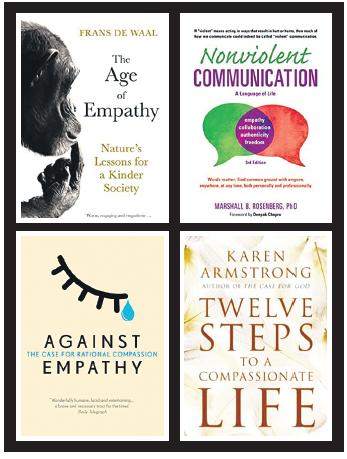Caring for empathy

BENGALURU: Satya Nadella, Tim Cook, Sundar Pichai and Dara Khosrowshahi are New Age corporate leaders who demonstrate a unique quality: Empathy. They have used this characteristic to drive their companies to growth. Unlike leaders who have a “dog eat dog” attitude and “winning at all costs” mindset, these leaders are thoughtful, open to criticism, and work towards the success of others. All of them are good listeners first, before being good orators.
Organisations are now shunning corporate politics and turf war and chanting the mantra of empathy. Satya Nadella, who reads voraciously and has eclectic tastes, says, “Without books, I can’t live.” One of his favourites, Nonviolent Communication by psychologist Marshall B Rosenberg, played a starring role in Microsoft’s transformation. The book is all about how to communicate with empathy.
 Tim Cook, in his 2017 MIT commencement address speech, warned graduates, “People will try to convince you that you should keep empathy out of your career. Don’t accept this false premise.” While Cook will always remain in the shadow of Steve Jobs, there’s no disputing the fact that he has made Apple a nicer place to work, with his empathetic style of leadership.
Tim Cook, in his 2017 MIT commencement address speech, warned graduates, “People will try to convince you that you should keep empathy out of your career. Don’t accept this false premise.” While Cook will always remain in the shadow of Steve Jobs, there’s no disputing the fact that he has made Apple a nicer place to work, with his empathetic style of leadership.
When we at the SAP Academy for Engineering started the programme for managers, our central theory was that the best managers kept “empathy at the core and ambition at the edges”. The programme had Jamil Zaki, Stanford professor and author of The War for Kindness, among the faculty. In his book, Zaki calls for concerted action to build empathy in a world he sees as fractured and threatened by escalating tribalism, cruelty, and isolation.
The Age of Empathy by Frans de Waal views empathy from an evolutionary perspective. Empathy, de Waal says, is an innate capacity that likely evolved from mammalian parental care. His research shows ample evidence that our ability to identify with another’s distress is deeply rooted in the origin of our species. This view has been independently reinforced by recent biomedical studies showing that our brains are built to feel another’s pain.
In Compassionomics: The Revolutionary Scientific Evidence that Caring Makes a Difference, physician-scientists Stephen Trzeciak and Anthony Mazzarelli uncover the eye-opening data that compassion could be a wonder drug for the 21st century. This is a great book that focuses on medical empathy but has implications beyond it.
 Karen Armstrong’s thoughtful and thought-provoking Twelve Steps for a Compassionate Life taps into spiritual traditions’ view of empathy and connectedness and shows us how we could lead a more compassionate life. Armstrong believes that while compassion is intrinsic to human beings, each of us needs to diligently cultivate and expand our capacity for compassion.
Karen Armstrong’s thoughtful and thought-provoking Twelve Steps for a Compassionate Life taps into spiritual traditions’ view of empathy and connectedness and shows us how we could lead a more compassionate life. Armstrong believes that while compassion is intrinsic to human beings, each of us needs to diligently cultivate and expand our capacity for compassion.
Dev Patnaik, a leading business strategist, insists that people are hardwired to care and so are some of the most successful companies. His book Wired to Care takes you inside big-name brands like Target, Intel, and IBM, allowing us to see how powerful empathy can be in a business context.
However, if you want to hear an alternative (though I feel, misguided) perspective, Against Empathy by Yale researcher Paul Bloom is a provocative account of empathy’s pitfalls. Blooms suggests that empathy might stoke inequality and immorality, and shows how when it comes to both major policy decisions and our everyday individual choices, limiting our impulse toward empathy is often the most compassionate path we can take.
Finally, the election of Joe Biden and Kamala Harris signals a return to empathy in 2021. But mere emotion will not do; it should lead to action. What we actually need is actions centred on empathy!

